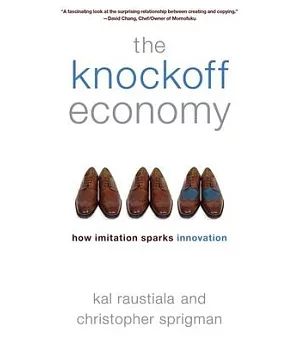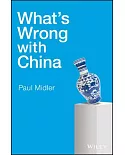"In many sectors, copying is more or less accepted as a business strategy. Products that look, taste, and sound suspiciously like ’originals’ abound in upscale chain restaurants, fashion
outlets, and contemporary architecture. And such industries typically regard the pervasive piracy as a spur toward further innovation (albeit individual designers and creators may condemn it).
When an original becomes a knockoff, it’s a signal to move on to the next big thing. Interestingly, while piracy certainly skirtslegality, there is no prosecution of it in many arenas. Instead,
sectors as diverse as the jam band circuit, the gourmet scene in New York and Los Angeles, the comedy circuit, the garment industry, and the NFL accept the fact that copying will occur and
instead rely on social norms to police the practice. Those who step out of bounds are called on it, and often ostracized. As Kal Raustiala and Chris Sprigman argue in The Piracy Paradox, such
fields have not suffered any loss of vibrancy. There is presently an intense debate surrounding copyright law, especially with regard to how it applies to the media and entertainment
industries, yet very rarely does it factor in the benefits of piracy that are so evident in other sectors. This is to their detriment, the authors argue. Enhancing copyright law has not worked,
largely because people subjected to it do not accept the social norms that the law implies. Changing norms so that consumers and producers buy into limits on acceptable practice offers a path
out of the dilemma. That means acknowledging the dynamism that an acceptable level of piracy fosters, and in turn rejecting aggressive approaches to copyright law enforcement"--





















